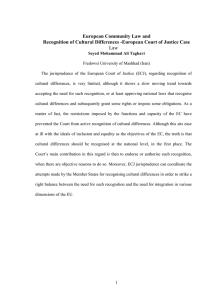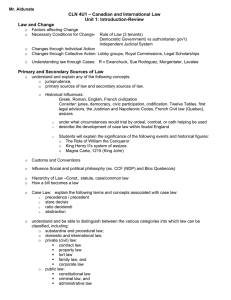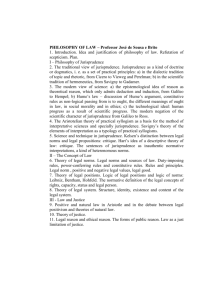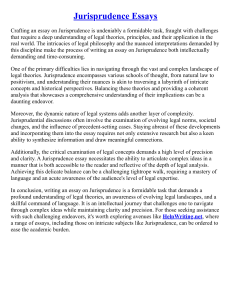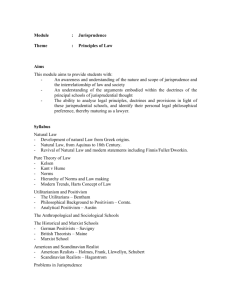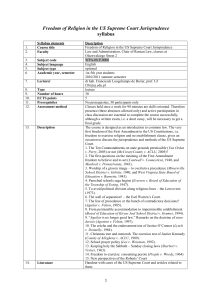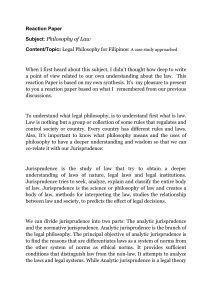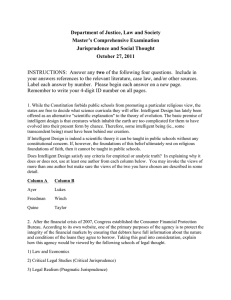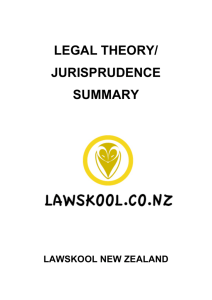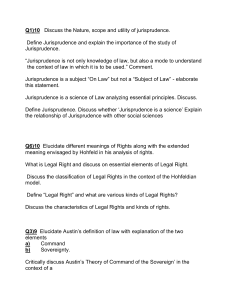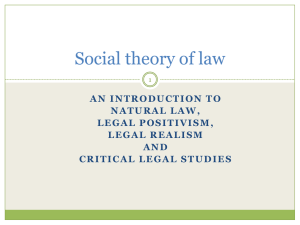Intro to Natural vs Positive Law - macdonald
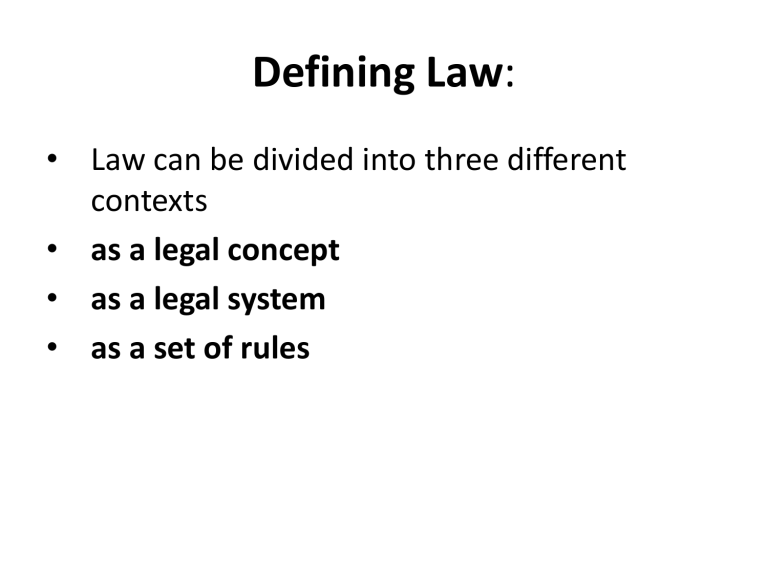
Defining Law:
• Law can be divided into three different contexts
• as a legal concept
• as a legal system
• as a set of rules
Legal Concept
• associated with abstract qualities such as:
• Justice
• Legitimacy
• Equality
• Morality
Legal Concepts
• we value laws on the basis of their qualities rather than on the purposes they were meant to achieve.
• Ex:
– Euthanasia,
– death penalty,
– marijuana
• What are the purposes of the above laws?
• Quality of the law: Can they be simply determined acceptable/unacceptable
Legal system
• Comprised of the facilities, institutions, agencies, and procedures involved in operating the law
• Ex: police, courts, jails, ADR
• Yet, (…numbers reveal that people with serious mental illness are over-represented by a factor of about 5 in Canadian jails (Allodi 1977, Gingell 1991).
Should we be reducing the use of prisons and looking to alternate methods of dealing with criminals?
A set of rules
• enacted by government bodies
• substantive laws (prescribe our rights and freedoms) obligations
• Ex: Y.O.A, Criminal Code
• ideally should reflect the values, ideals and purposes of the people.
• law considered as a set of rules established by a governing authority, including the values and concepts that inform those rules, and/or the various institutions making up the system which implements the rules. (Who owns the ball?)
The Matrix of Jurisprudence
• Concepts (democracy, sovereignty, rights, equality)
• Institutions (courts, parliament, jury)
• Principles (Innocent until proven guilty, No person is above the law, Rule of law)
• Philosophy (you are currently researching this)
• Theories (natural law, positive law, divine rights, social contract)
• Historical Development (common law, civil law, criminal law)
Jurisprudence
• Jurisprudence is derived from the latin words
juris, meaning right or of law , and prudens, meaning skilled .
• Jurisprudence therefore means “ knowledge or skill in the law ” .
• Jurisprudence provides a way of thinking about the law and it helps to predict the future path of legal thinking.
Jurisprudence
• Law as a study of jurisprudence may be interpreted as an interlocking set of beliefs and ideals that have evolved over time to control our behavior and protect our interests.
• Has been compared to a great puzzle which has many interlocking idea ’ s and theories
• Philosophy is the process of critical inquiry into the concepts of a particular branch of knowledge.
Continued
• What is “ logic ” ? What is “ reason ” ?
• Through the study of legal philosophy, we learn both what to think and how to think about the law.
• Jurists are people versed in the law. Jurists are people who write and teach about the philosophy of the law.
• We are currently here…
To conclude…
• Jurisprudence is never exact. It is like a weathervane indicating to us in what direction the winds of justice may presently or soon be blowing.
• As we move forward, always think of the necessary questions to ask about given cases, topics, or issues. That’s what law is all about.
From this point on, you are “young lawyers”.
Legal Theories
Generally, there are two views of
“just and unjust” that are reflected in our legal system
Positive Law
• Right and wrong are what we as a group, culture, nation, or civilization decide they are. The only way to define what is just or right or wrong is to look at what the law says. This is called positive law or legal positivism.
Natural Law
• Right and wrong are concepts that are independent of human experience.
Therefore, the laws proclaimed by humans who happen to be in control may not always command obedience. The explanations of how humans perceive these never changing concepts depend on the philosopher that is being studied. This is called natural law.
